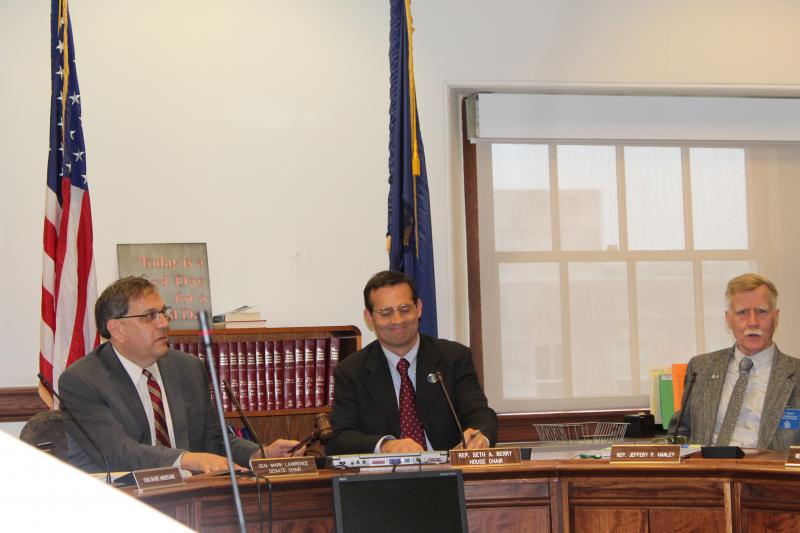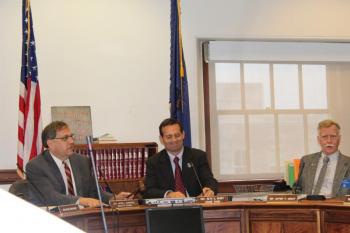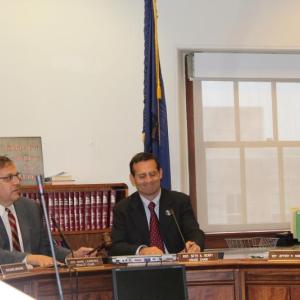Study for public utility moves forward
A study that will consider the pros and cons of consolidating Central Maine Power and Emera into a single consumer-owned utility has received approval from the Energy, Utilities and Technology Committee. The new entity, if it happens, would be called the Maine Power Delivery Authority.
The study came from a bill sponsored by Rep. Seth Berry (D-Bowdoinham), who said he had heard from many constituents and other Maine citizens that CMP had badly handled a change to its billing system, timed with a windstorm that knocked out power to a good portion of the state, and that there were major concerns about how the company’s smart meter system performed during that storm. Many customers faced bills twice or three times what they had been before the storm.
Those complaints kicked off two Public Utilities Commission investigations, a series of concerns raised by the Office of the Public Advocate, and public hearings in the EUT committee in the Legislature. Berry sponsored LD 1646, An Act To Restore Local Ownership and Control of Maine's Power Delivery Systems, which would have taken over the investor-owned utilities in favor of a public system, such as in states like Nebraska and in certain municipalities, including Kennebunk in Maine. The cost of electricity delivery in states with a publicly or consumer-owned utility is about 15 percent less than charged by CMP or Emera, according to Berry.
According to the plan, the study panel will consist of PUC members as well as recognized experts in the field of energy transmission and delivery systems. The panel is expected to provide a report about the legal, financial, and other issues that might arise during the process of consolidation. For their parts, at a public hearing, both attorneys for Emera and CMP said that they would challenge any effort to force a sale of the utilities, both in the legislature and in the courtroom.
This preamble of sorts to LD 1646 is provided in a resolve, not needing a full vote of the legislature, which states the goals of the proposal and justification for it, including that 19 of 20 Mainers receives power from a foreign entity, while those who have consumer-owned utilities have lower rates and better reliability. It also pointed out that large transmission projects are a major cost-driver in New England, and suggested smaller distributed energy systems, such as in Boothbay Harbor, may save ratepayers money over the long term.
The PUC and the energy consultants would look at the legal, financial and technical elements, and suggest possible alternatives to the Maine Power Delivery Authority. Berry’s initial proposal included a larger task force including all stakeholders, but in the interests of moving the project forward in this legislature, it was agreed to streamline the process, he said.
Requests for proposals will go out this summer, with a report due back to the EUT committee by Feb. 15. The committee may meet a few times this summer and fall to receive updates on the study.
Event Date
Address
United States

























